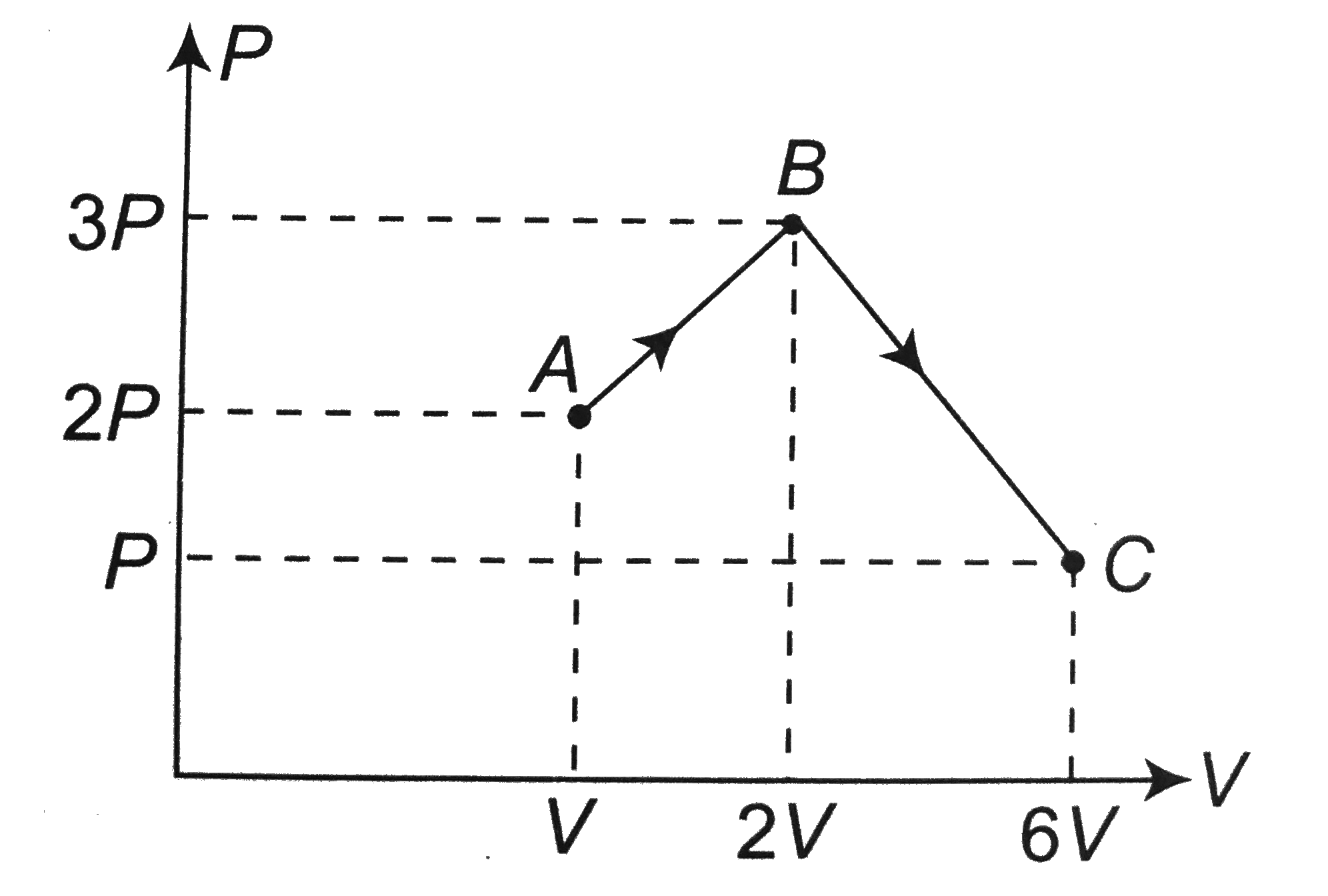An ideal gas undergoes an isobaric process. If its heat capacity is C, at constant volume and number of mole n, then the ratio of work done by gas to heat given to gas when temperature of gas changes by ΔT is :
(nRCv+R)
(RCv+R)
(nRCv−R)
(RCv−R)
The correct Answer is:A
Step by step video, text & image solution for An ideal gas undergoes an isobaric process. If its heat capacity is C, at constant volume and number of mole n, then the ratio of work done by gas to heat given to gas when temperature of gas changes by DeltaT is : by Physics experts to help you in doubts & scoring excellent marks in Class 12 exams.
Topper's Solved these Questions
Similar Questions
An ideal diatomic gas undergoes a process in which the pressure is proportional to the volume. Calculate the molar specific heat capacity of the gas for the process.
View SolutionThe molar heat capacity of a gas at constant volumes is CV. If n moles of the gas under ΔT change in temperature it's internal energy will change by nCVΔT
View Solution
Knowledge Check
- Question 1 - Select One
A monoatomic ideal gas undergoes a process ABC. The heat given to the gas is
 A7.5PVB12.5PVC16.5PVD20.5PV
A7.5PVB12.5PVC16.5PVD20.5PV - Question 2 - Select One
For an ideal monoatomic gas, molar heat capacity at constant volume (Cv) is
A23RB32RC52RD25R - Question 3 - Select One
When heat in given to a gas in an isobaric process, then
AThe work is done by the gasBInternal energy of the gas increasesCBoth (a) and (b)DNone from (a) and (b)
The ratio of work done by an ideal diatomic gas to the heat supplied by the gas in an isobaric process is
View SolutionA monotomic ideal gas undergoes a process in which the ratio of p to V at any instant is constant and equals to 1. what is the molar heat capacity of the gas?
View SolutionA monoatomic ideal gas undergoes a process in which the ratio of P to V at any istant is constant and equal to unity. The molar heat capacity of the gas is
View SolutionA monoatomic ideal gas undergoes a process in which the ratio of P to V at any instant is constant and equal to unity. The molar heat capacity of gas is:
View SolutionIn a isobaric process the work done by a di-atomic gas is 10 J , the heat given to the gas will be :
View Solution

